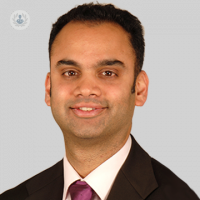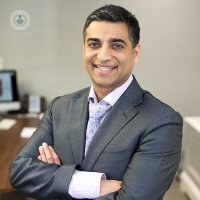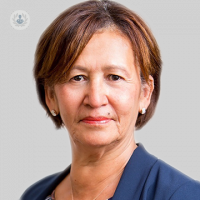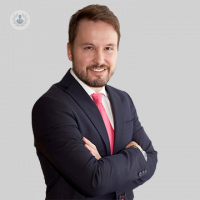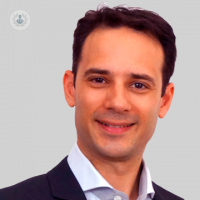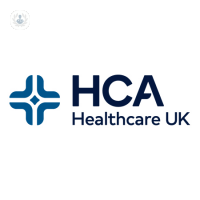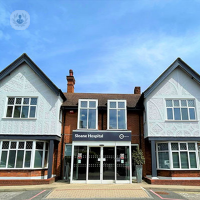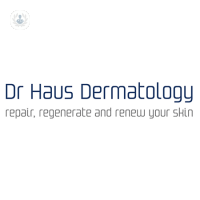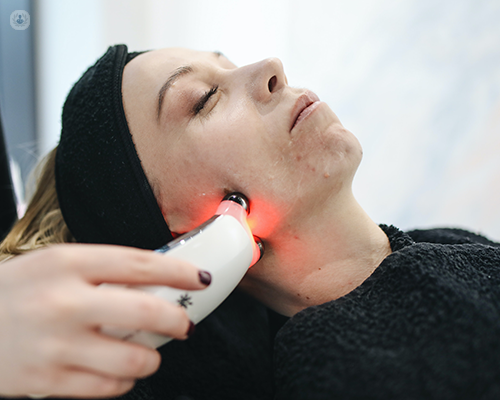
What is laser treatment?
Lasers have many uses as a medical treatment and can be used to cut, burn or destroy tissue. Laser treatment can include:
- cutting tissue during surgical procedures;
- reshaping the cornea to improve sight during laser eye surgery;
- burning away cavities;
- teeth whitening;
- hair removal;
- clearing arteries;
- removing wrinkles, tattoos, varicose veins and many more unwanted things on/in the body.
A laser (meaning ‘Light Amplification by Stimulated Emission of Radiation’) is a very intense light that can produce permanent effects when applied to a surface. It produces a very narrow beam of light which is useful in many technologies, and specifically in medical applications.
What are the medical applications of laser treatment?
Laser is used in many different ways in medicine, some of the most common medical procedures using laser treatment include:
- Laser surgery – This is a type of surgery that uses the laser rather than a scalpel to make bloodless cuts in the tissue, or to remove things such as tumours from the surface of the tissue. A number of different types of laser treatment can be used in surgery, depending on the requirements and the type of surgery. The most common types include CO2 laser, pulsed-dye laser, argon laser, excimer laser and diode laser.
- Laser skin treatment – Laser has been used in dermatology for many years, and there are numerous ways it can be applied. Lasers can be used to treat vascular conditions such as thread veins, varicose veins and spider veins, where the laser is used to burn away the veins or to shrink the veinous tissues.
- Skin pigmentation issues - Lasers are also used to treat skin pigmentation issues such as birthmarks, sun spots and freckles, and it can be used to rejuvenate the skin and remove unwanted marks such as acne scars. It is now common practice for lasers to be used to remove unwanted tattoos.
- Laser hair removal – The removal of unwanted hair on the face and body is a common procedure using lasers. The laser emits a green light that is absorbed into the hair follicle and destroys the hair. The surrounding skin is unharmed.
- Laser eye surgery – Corrective eye surgery using lasers is now almost as common as having contact lenses. The surgery involves reshaping the cornea, either by flattening or by increasing the curvature, to correct the vision. Lasers can also be used to repair damage to the eye such as a detached retina.
- Laser teeth whitening – Lasers are used in dentistry in a number of ways, most commonly, they are used alongside a bleaching agent to whiten the teeth. The bleach is applied to the teeth, and the laser is used to heat the bleach and speed up the bleaching process.
- In place of a drill - Laser treatment is becoming more commonly used in place of a drill to remove the material that forms in a cavity, so that the tooth can be filled. This adds benefits as many people do not like the sound of the drill, the laser can also seal blood vessels leading to decreased bleeding when a laser is used compared with a drill.
- Clearing arteries using lasers - Lasers are increasingly being applied to clear plaque from people’s arteries. The laser is fed through the patient's arteries, usually from a small incision in the groin, and moved to the correct position where there is a blockage in the artery. The laser can then burn away the fatty plaque, helping to increase blood flow.
What specialist utilises laser treatment in their practice?
Various medical professionals utilise laser treatment in their practise such as dermatologists and dermatological surgeons, burns, plastic and laser surgeons alongside maxillofacial surgeons.
11-13-2012 05-19-2023Laser
Dr Raj Mallipeddi - Dermatology
Created on: 11-13-2012
Updated on: 05-19-2023
Edited by: Karolyn Judge

What is laser treatment?
Lasers have many uses as a medical treatment and can be used to cut, burn or destroy tissue. Laser treatment can include:
- cutting tissue during surgical procedures;
- reshaping the cornea to improve sight during laser eye surgery;
- burning away cavities;
- teeth whitening;
- hair removal;
- clearing arteries;
- removing wrinkles, tattoos, varicose veins and many more unwanted things on/in the body.
A laser (meaning ‘Light Amplification by Stimulated Emission of Radiation’) is a very intense light that can produce permanent effects when applied to a surface. It produces a very narrow beam of light which is useful in many technologies, and specifically in medical applications.
What are the medical applications of laser treatment?
Laser is used in many different ways in medicine, some of the most common medical procedures using laser treatment include:
- Laser surgery – This is a type of surgery that uses the laser rather than a scalpel to make bloodless cuts in the tissue, or to remove things such as tumours from the surface of the tissue. A number of different types of laser treatment can be used in surgery, depending on the requirements and the type of surgery. The most common types include CO2 laser, pulsed-dye laser, argon laser, excimer laser and diode laser.
- Laser skin treatment – Laser has been used in dermatology for many years, and there are numerous ways it can be applied. Lasers can be used to treat vascular conditions such as thread veins, varicose veins and spider veins, where the laser is used to burn away the veins or to shrink the veinous tissues.
- Skin pigmentation issues - Lasers are also used to treat skin pigmentation issues such as birthmarks, sun spots and freckles, and it can be used to rejuvenate the skin and remove unwanted marks such as acne scars. It is now common practice for lasers to be used to remove unwanted tattoos.
- Laser hair removal – The removal of unwanted hair on the face and body is a common procedure using lasers. The laser emits a green light that is absorbed into the hair follicle and destroys the hair. The surrounding skin is unharmed.
- Laser eye surgery – Corrective eye surgery using lasers is now almost as common as having contact lenses. The surgery involves reshaping the cornea, either by flattening or by increasing the curvature, to correct the vision. Lasers can also be used to repair damage to the eye such as a detached retina.
- Laser teeth whitening – Lasers are used in dentistry in a number of ways, most commonly, they are used alongside a bleaching agent to whiten the teeth. The bleach is applied to the teeth, and the laser is used to heat the bleach and speed up the bleaching process.
- In place of a drill - Laser treatment is becoming more commonly used in place of a drill to remove the material that forms in a cavity, so that the tooth can be filled. This adds benefits as many people do not like the sound of the drill, the laser can also seal blood vessels leading to decreased bleeding when a laser is used compared with a drill.
- Clearing arteries using lasers - Lasers are increasingly being applied to clear plaque from people’s arteries. The laser is fed through the patient's arteries, usually from a small incision in the groin, and moved to the correct position where there is a blockage in the artery. The laser can then burn away the fatty plaque, helping to increase blood flow.
What specialist utilises laser treatment in their practice?
Various medical professionals utilise laser treatment in their practise such as dermatologists and dermatological surgeons, burns, plastic and laser surgeons alongside maxillofacial surgeons.


Ask an expert: What is venous lake of the lip?
By Dr Nawal Kishore Jha
2024-12-30
A dark blue or purple spot on the lip, known as venous lake of the lip, is caused by smoking or exposure to sunlight in some cases. Seeing a specialist practitioner is important to rule out more serious conditions with a similar presentation. We invited renowned cosmetic and hair restoration surgeon Dr Nawal Kishore Jha to shed light on venous lake of the lip's causes and the available treatment options. See more

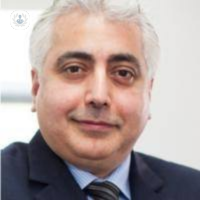
Using laser ablation to treat stretch marks
By Dr Firas Al-Niaimi
2024-12-30
Leading London-based dermatologist Dr Firas Al-Niaimi performs many types of skin rejuvenation treatments, specialising specifically in the use of laser technology. Here he explains how skin rejuvenation techniques can help improve the appearance of stretch marks. See more


PicoSecond laser tattoo removal: your comprehensive guide
By Dr Tracy Xu
2024-12-30
Tattoo removal has become a popular procedure for those wishing to remove their ink. With advancements in laser technology, the process is now more accessible than ever. However, it involves several considerations, from understanding the procedure to anticipating costs, safety, and aftercare. Renowned advanced aesthetic medicine specialist Dr Tracy Xu provides a comprehensive guide to help you navigate the path to tattoo removal. See more
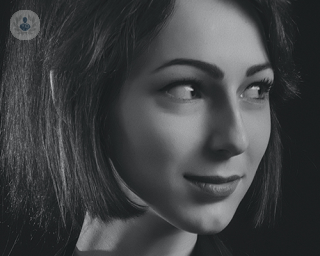

The key approach to successfully treating dark circles
By Mr Jonathan Britto
2024-12-30
Do you know what causes dark circles or how they can be successfully treated? Mr Jonathan Britto explains the key to successful treatment and the techniques available. See more
Experts in Laser
-
Dr Raj Mallipeddi
DermatologyExpert in:
- Cosmetic dermatology
- Surgical dermatology
- Skin cancer
- Mohs surgery
- Laser
- Photodynamic therapy
-
Dr Saqib Jawaid Bashir
DermatologyExpert in:
- Mohs surgery
- Laser
- Cosmetic dermatology
- Skin cancer
- Scars
- Acne
-
Dr Wanda Robles
DermatologyExpert in:
- Laser
- Skin cancer
- Psoriasis
- Skin allergies
- Acne
- Photodynamic therapy
-
-
Professor Kayvan Shokrollahi
Plastic surgeryExpert in:
- Laser
- Skin lesions
- Moles
- Pinnaplasty
- Basal cell carcinoma
- Skin cancer
- See all

The Portland Hospital - part of HCA Healthcare
The Portland Hospital - part of HCA Healthcare
205 - 209 Great Portland St. W1W 5AH
No existe teléfono en el centro.
By using the telephone number provided by TOP DOCTORS, you automatically agree to let us use your phone number for statistical and commercial purposes. For further information, read our Privacy Policy
Top Doctors

The Sloane Hospital - part of Circle Health Group
The Sloane Hospital - part of Circle Health Group
125 Albemarle Rd, Beckenham BR3 5HS
No existe teléfono en el centro.
By using the telephone number provided by TOP DOCTORS, you automatically agree to let us use your phone number for statistical and commercial purposes. For further information, read our Privacy Policy
Top Doctors

Dr Haus Dermatology
Dr Haus Dermatology
75 Harley Street, Marylebone
No existe teléfono en el centro.
By using the telephone number provided by TOP DOCTORS, you automatically agree to let us use your phone number for statistical and commercial purposes. For further information, read our Privacy Policy
Top Doctors
-
The Portland Hospital - part of HCA Healthcare
205 - 209 Great Portland St. W1W 5AH, Central LondonExpert in:
- Neurological spinal surgery
- Orthopaedic spinal surgery
- Maternity care
- Pregnancy
- Scoliosis
- In vitro fertilisation (IVF)
-
The Sloane Hospital - part of Circle Health Group
125 Albemarle Rd, Beckenham BR3 5HS , South LondonExpert in:
- Abdominal ultrasound
- Vascular Surgery
- Cardiology
- Colorectal surgery
- Endocrine Surgery
- General Surgery
-
Dr Haus Dermatology
75 Harley Street, Marylebone, W1G Marylebone LondonExpert in:
- Acne
- Dermatitis
- Nail infections
- Skin lesions
- Moles
- Rosacea
- See all
- Most viewed diseases, medical tests, and treatments
- Immunotherapy
- Facial feminisation surgery
- Hormone therapy
- Migraine
- Autoimmune diseases
- Nutrition
- Weight loss injections
- Endermologie
- Polynucleotides
- Nipple discharge
